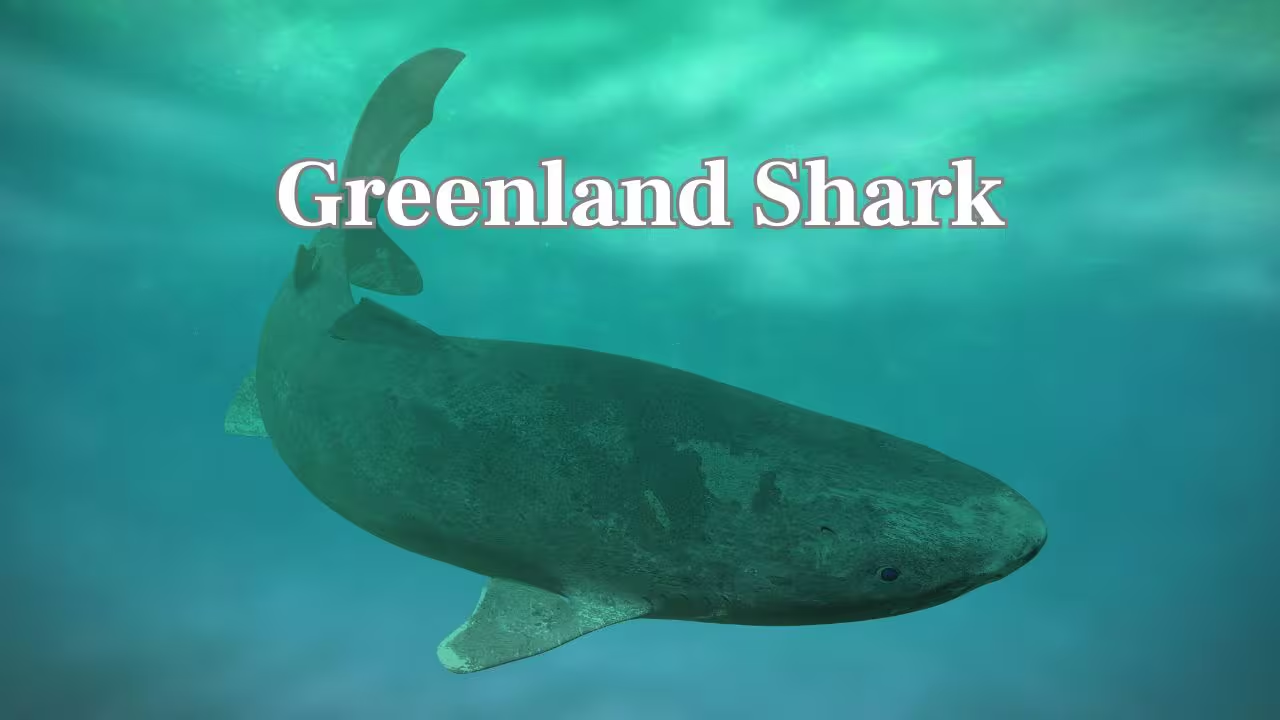
The Marvel of Longevity in the Animal Kingdom – 400-Year-Old Greenland Shark
In the vast and mysterious waters of the Atlantic Ocean, a creature has been quietly defying the typical boundaries of life expectancy for centuries. The Greenland shark, often overlooked amidst the more glamorous marine fauna, stands out as an incredible testament to the extraordinary resilience and longevity of life. Recent studies and discoveries have unveiled that these sharks can live for over 400 years, making them the oldest living vertebrates on Earth. Their age not only challenges our understanding of marine life but also opens exciting possibilities for scientific research into aging, survival, and adaptation.
Unraveling the Age of the Greenland Shark
The remarkable lifespan of Greenland sharks has been a subject of fascination and scientific inquiry. Traditionally, estimating the age of marine species was challenging; however, innovative techniques such as radiocarbon dating of eye lenses have provided accurate insights. According to researchers, some Greenland sharks have been alive since the early 1600s, making their age comparable to some of the most ancient humans. One prominent study suggests that these sharks can live up to 392 to 400 years, a figure that has transformed our perception of vertebrate longevity.
Some intriguing facts about their aging process include:
- Their slow growth rate, taking approximately 1 cm per year.
- The long time it takes to reach sexual maturity, which is estimated at around 150 years.
- Their ability to survive in icy, nutrient-scarce waters, indicating specialized biological adaptations.
The Life and Adaptations of Greenland Sharks
Greenland sharks are native to the cold, Arctic, and North Atlantic waters. These sharks tend to inhabit depths ranging from 200 to 600 meters, often dwelling in the icy, dark waters of the North Atlantic and the Arctic Ocean. Their adaptations to such extreme environments are a subject of scientific interest. The sharks have a slow metabolism, which is believed to contribute to their longevity, as slower biological processes tend to extend lifespan in many organisms.
Some fascinating features include:
- Cold-water adaptation: Their physiology allows them to survive extreme cold temperatures, some approaching -2°C (28°F).
- Slow movement: They are relatively sluggish, which conserves energy and may contribute to their extended lifespan.
- Diet and feeding habits: They are apex scavengers and predators, feeding on fish, seals, and carcasses, which indicates a highly adaptable diet.
Impact on Human Knowledge and Future Research
The discovery of such an ancient vertebrate opens various avenues in scientific research, especially concerning human aging and medicine. Understanding the biological mechanisms that allow Greenland sharks to live for centuries could hold the key to unlocking anti-aging therapies and enhancing human healthspan. Researchers are particularly interested in their metabolic processes, DNA repair mechanisms, and resistance to environmental stressors.
The Potential of Greenland Shark Research
- Studying their genetics might reveal genes responsible for longevity and disease resistance.
- Understanding their slow aging process could lead to breakthroughs in age-related illnesses.
- Insights from these sharks can inform conservation efforts and marine ecology, emphasizing the importance of preserving fragile Arctic ecosystems.
Conservation Concerns and Ethical Considerations
Despite their impressive lifespan, Greenland sharks face threats from fishing, habitat disturbances, and climate change. As the Arctic ice melts and human activities increase in these regions, their habitats are at risk. Protecting these ancient creatures is not only a matter of biodiversity but also a chance to retain invaluable biological information that could benefit humanity.
Many conservationists emphasize the importance of establishing marine protected areas and sustainable fishing practices to ensure the survival of Greenland sharks and their unique genetic legacy. Additionally, ethical considerations around researching such slow-growing, vulnerable species must guide scientific endeavors to avoid disrupting their delicate ecological balance.
The Wonder of Nature’s Longevity
The Greenland shark exemplifies nature’s capacity for resilience and adaptation. Their incredible lifespan challenges our understanding of biological limits and invites us to look deeper into the mysteries of aging and survival. As scientists continue to study these ancient beings, they offer a window into the past and a glimpse of what might be possible for extending life in humans.
In a rapidly changing world, these silent sentinels of the Arctic serve as reminders of the importance of understanding and preserving our planet’s biological heritage. The Greenland shark’s story is not only fascinating but also vital in the ongoing quest to decode the secrets of longevity and resilience in the natural world.
For more updated news please keep visiting Prime News World.







